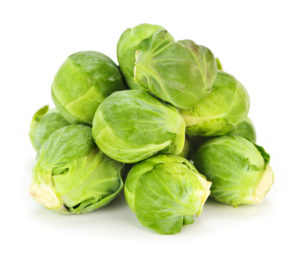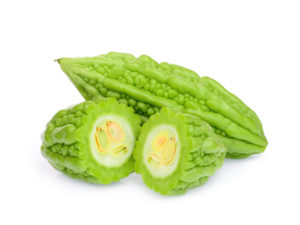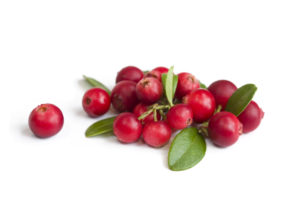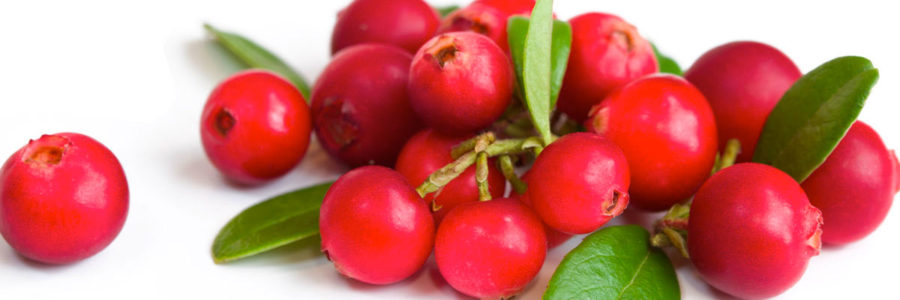Bitter foods have long been used in traditional medicine, but are bitter foods really healthy? Learn the benefits of bitter foods in our latest blog post.
Are Bitter Foods Healthy For You?
Bitter foods have a bad reputation because of their taste. The assumption is they’re not good for you because they aren’t very palatable. In reality, they are very nutritious and have several surprising health benefits.
What Are Bitter Foods? | Why is Bitter Food Healthy? | List of Bitter Foods | Final Thoughts
![]()
This article has been medically reviewed by Dr. Charles Penick, MD![]()
What Are Bitter Foods?
Bitter foods are often called “bitters” because they give off a bitter taste. In Traditional Chinese Medicine, they were used to reduce the unhealthy buildup of bodily fluids and counteract the heat. In Ayurveda, bitter foods help balance those with a pitta (hot, sharp, and intense) or Kapha dosha (retain fluids and produce more fat and mucus). Common bitter foods are apple cider vinegar, cranberries, artichoke, kale, and sesame seeds.
Why is Bitter Food Healthy?
Bitter foods have many health benefits. Studies conducted on them have discovered the following:
- Healthy Digestion. Bitter foods stimulate digestive enzymes and bile production, a fluid used to break down and digest fats. Also, bitter-tasting foods may play a role in treating dyspepsia, a condition where the digestive does not absorb food and nutrients properly.1
- Calcium Absorption. Bitter foods stimulate the production of digestive enzymes in the body, which might increase the absorption of calcium and other nutrients. Calcium deficiencies can contribute to osteoporosis, fatigue, brittle nails, muscle cramps, and dental problems. Preliminary studies on calcium content in vegetables indicate there is “a strong relationship between a vegetable’s calcium content and its bitterness.” 2
- Leaky Gut. Bitter foods have been used throughout history to improve digestion after eating large meals. Also, the enzymes produced when consuming bitters may act like prebiotics, which could help prevent leaky gut.
- Boost Microbiome. The gut microbiome consists of bacteria, viruses, protozoa, fungi, and all microorganisms in the gastrointestinal tract. The enzymes in bitter foods (like apple cider vinegar) help prevent undigested food from harming the gut microbiome. Studies indicate the gut microbiota plays a vital role in human health and the development of gastrointestinal disorders, colorectal cancer, and metabolic disease.3
List of Bitter Foods
Here are a few popular bitter foods and their health benefits.
Brussels Sprouts

Brussel sprouts were initially cultivated in Brussels, Belgium, and are members of the cabbage family (Brassica oleracea). They are low in calories and high in fiber, nutrients, antioxidants, and vitamins. In some studies, Brussels sprouts are cruciferous vegetables and decrease lung and colorectal cancer risk.4 Other cruciferous vegetables include cabbage, cauliflower, collard greens, kale, broccoli, kohlrabi, mustard, rutabaga, and turnips.
Bitter Melon

Bitter melon is also known as bitter apple, bitter squash, and gourd. Bitter melon comes from a subtropical vine found in Asia, Africa, and the Caribbean. In addition to being fat-free, cholesterol-free, and low in sodium, it has few calories. It is also rich in vitamins A, C, and folate. Bitter melon has been consumed in various dishes for centuries and is believed to possess many medicinal qualities. Studies indicate bitter melon inhibits the growth of cancer cells and has antioxidant and anti-inflammatory properties.5
Cranberries

Cranberries are related to blueberries, huckleberries, and bilberries. They are a good source of dietary fiber, vitamin C, manganese, vitamin E, and vitamin K. Cranberries may play a role in reducing oral diseases, including periodontitis (gum infections) and tooth decay.6 In a recent study, low-calorie cranberry juice helped decrease risk factors for several health issues, including insulin resistance, diastolic blood pressure, cardiovascular disease, and stroke.7
Coffee

Coffee is a drink brewed from roasted coffee beans. Coffee contains vitamin A, K, B-9, potassium, phosphorus, and calcium. In addition to holding various nutrients, drinking 3-4 cups of coffee a day may reduce the risk of developing type 2 diabetes.8 In another study, coffee consumption correlated with a lower risk of several specific cancers and neurological, metabolic, and liver conditions.9
Red Wine

Red wine comes from dark-colored grapes. It is a staple of the Mediterranean Diet, which is known for helping to improve heart health. It also contains quercetin, which possesses anti-inflammatory and anti-viral properties. Like other bitter foods, red wine can “significantly modulate the growth of select gut microbiota in humans,” making it beneficial for maintaining healthy gut bacteria.10
Final Thoughts
Bitter foods have been consumed for thousands of years and are widely known for their medicinal properties. They have been used to improve digestion, absorb calcium, and boost the gut microbiome. While many don’t find the taste of bitter foods appealing, they can play a crucial role in maintaining good health.
Click the links below for a few recipes on popular bitter foods:
Give bitter foods a try. Your body might thank you.
Medical Disclaimer: This article is based on the opinions of The Cell Health team. The information on this website is not intended to replace a one-on-one relationship with a qualified healthcare professional and is not intended as medical advice. It is intended to share knowledge and information from the research and experience of the Cell Health team. This article has been medically reviewed by Dr. Charles Penick, MD, for the accuracy of the information provided. Still, we encourage you to make your own healthcare decisions based on your research and in partnership with a qualified healthcare professional.
References:
- Michael K. McMullen, Julie M. Whitehouse, Anthony Towell. Bitters: Time for a New Paradigm. Evid Based Complement Alternat Med. 2015; 2015: 670504. Published online 2015 May 14. doi: 10.1155/2015/670504. [PMCID: PMC4446506]. PMID: 26074998https://www.ncbi.nlm.nih.gov/pmc/articles/PMC4446506/
- Michael G. Tordoff Mari A. Sandell. Vegetable Bitterness Is Related To Calcium Content. Appetite. 2009 Apr; 52(2): 498–504. doi: 10.1016/j.appet.2009.01.002. PMCID: PMC2768385. NIHMSID: NIHMS90520. [PMID: 19260165].https://www.ncbi.nlm.nih.gov/pmc/articles/PMC2768385/
- Ronald D Hills Jr, Benjamin A Pontefract, Hillary R Mishcon (et al). Gut Microbiome: Profound Implications for Diet and Disease. Review Nutrients. 2019 Jul 16;11(7):1613. doi: 10.3390/nu11071613. [PMID: 31315227 PMCID]: PMC6682904.https://pubmed.ncbi.nlm.nih.gov/31315227/
- Jane V. Higdon, Barbara Delage, David E. Williams, (et al). Cruciferous Vegetables and Human Cancer Risk: Epidemiologic Evidence and Mechanistic Basis. Pharmacol Res. 2007 Mar; 55(3): 224–236. Published online 2007 Jan 25. doi: 10.1016/j.phrs.2007.01.009. NIHMSID: NIHMS22145. [PMID: 17317210].https://www.ncbi.nlm.nih.gov/pmc/articles/PMC2737735/.
- Prasad R Dandawate, Dharmalingam Subramaniam, Subhash B Padhye (et al).Bitter Melon: A Panacea For Inflammation And Cancer. Chin J Nat Med. 2016 Feb;14(2):81-100. doi: 10.1016/S1875-5364(16)60002-X. [PMID: 26968675] PMCID: PMC5276711.https://pubmed.ncbi.nlm.nih.gov/26968675/
- C Bodet, D Grenier, F Chandad, (et al). Potential Oral Health Benefits Of Cranberry. Crit Rev Food Sci Nutr. 2008 Aug;48(7):672-80. doi: 10.1080/10408390701636211. [PMID: 18663617]. https://pubmed.ncbi.nlm.nih.gov/18663617/
- Janet A Novotny, David J Baer, Christina Khoo (et al). Cranberry Juice Consumption Lowers Markers Of Cardiometabolic Risk, Including Blood Pressure And Circulating C-Reactive Protein, Triglyceride, And Glucose Concentrations In Adults. J Nutr. 2015 Jun;145(6):1185-93. doi: 10.3945/jn.114.203190. Epub 2015 Apr 22. PMID: 25904733.https://pubmed.ncbi.nlm.nih.gov/25904733/
- Roseane Maria Maia Santos, Darcy Roberto Andrade Lima. Coffee Consumption, Obesity And Type 2 Diabetes: A Mini-Review. Eur J Nutr. 2016 Jun;55(4):1345-58. doi: 10.1007/s00394-016-1206-0. Epub 2016 Mar 30. [PMID: 27026242].https://pubmed.ncbi.nlm.nih.gov/27026242/
- Robin Poole 1, Oliver J Kennedy 1, Paul Roderick, (et al). Coffee Consumption And Health: Umbrella Review Of Meta-Analyses Of Multiple Health Outcomes. BMJ. 2017 Nov 22;359:j5024. doi: 10.1136/bmj.j5024. [PMID: 29167102].https://pubmed.ncbi.nlm.nih.gov/29167102/
- María Isabel Queipo-Ortuño 1, María Boto-Ordóñez, Mora Murri, Juan Miguel Gomez-Zumaquero, (et al). Influence Of Red Wine Polyphenols And Ethanol On The Gut Microbiota Ecology And Biochemical Biomarkers. [PMID: 22552027]. https://pubmed.ncbi.nlm.nih.gov/22552027/


